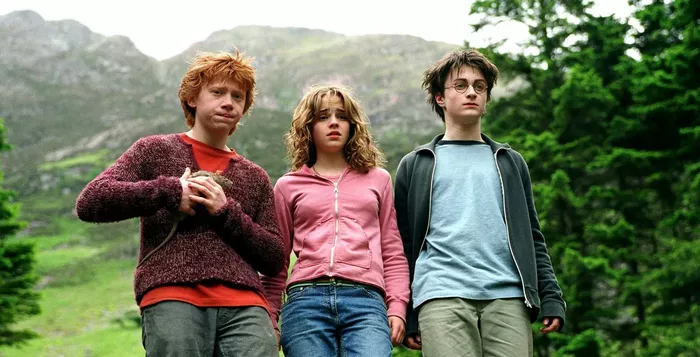The world of Harry Potter has enthralled audiences for years with its magical adventures, but one entry in the series, “Harry Potter and the Prisoner of Azkaban,” has sparked a debate over its classification as a horror film. Directed by Alfonso Cuarón, this installment stands out for its darker tone and eerie elements, prompting some to consider it a horror movie. In a recent interview, Cuarón himself weighed in on the matter, shedding light on the film’s distinctive characteristics and how it fits into the broader narrative of the wizarding world.
A Darker Turn for the Wizarding World
“Harry Potter and the Prisoner of Azkaban,” the third installment in the Harry Potter film series, marked a significant departure from the previous entries. Alfonso Cuarón took the helm as director and brought a distinct cinematic vision to the franchise. The film’s darker tone and mature themes were immediately noticeable, signaling a shift in the series as a whole.
Cuarón’s approach to the material added depth and complexity to the characters and the world they inhabit. The film delves into the concept of the dementors, soul-sucking creatures that induce intense feelings of fear and despair. These beings, which serve as guards at the wizarding prison of Azkaban, introduce a level of darkness and dread previously unseen in the series. Cuarón’s directorial choices, including the depiction of the dementors and the use of haunting imagery, contribute to the film’s unique atmosphere.
Coming of Age Amidst Darkness
One of the central themes of “Harry Potter and the Prisoner of Azkaban” is the coming of age of its main characters, particularly Harry, Ron, and Hermione. Cuarón’s decision to infuse the film with a darker and more mature tone aligns with this narrative arc. As the trio navigates the challenges of adolescence, they also confront the growing threats of the wizarding world.
The film’s darker elements serve to highlight the characters’ evolving emotions and experiences. It showcases their resilience in the face of adversity and the maturity required to face the mysteries surrounding the titular prisoner, Sirius Black. The tonal shift in “Prisoner of Azkaban” marks a pivotal moment in the series, setting the stage for the more complex and nuanced storytelling that follows.
Horror Elements in a Family-Friendly Fantasy
While “Harry Potter and the Prisoner of Azkaban” retains its status as a family-friendly fantasy film, it undeniably incorporates horror elements. The presence of dementors, with their chilling and nightmarish qualities, is a prime example. These creatures evoke fear and discomfort, both for the characters within the story and for the audience.
Additionally, the film introduces a werewolf character and explores the haunted history of the Shrieking Shack. These narrative choices add layers of suspense and horror to the storyline, making “Prisoner of Azkaban” a unique entry in the Harry Potter series. Alfonso Cuarón’s willingness to embrace the darker aspects of J.K. Rowling’s source material contributes to the film’s status as a standout installment.
Cuarón’s Perspective on the Horror Debate
In a recent interview, Alfonso Cuarón addressed the ongoing debate about whether “Harry Potter and the Prisoner of Azkaban” should be classified as a horror film. The director acknowledged the film’s darker and more unsettling moments, stating that he indeed approached it with a horror sensibility. Cuarón emphasized the importance of embracing the story’s complexities and tapping into the emotional depth of the characters.
Cuarón’s willingness to blur the lines between genres in “Prisoner of Azkaban” has had a lasting impact on how the film is perceived. While it remains firmly rooted in the world of fantasy, its infusion of horror elements has made it a unique and enduring entry in the Harry Potter series, one that continues to spark discussions and appreciation among fans.
Conclusion
“Harry Potter and the Prisoner of Azkaban” stands as a testament to the versatility and artistic vision of director Alfonso Cuarón. Its darker tone and incorporation of horror elements have prompted debates over its classification, but Cuarón’s recent comments confirm that he approached the film with a horror sensibility. The result is a cinematic experience that enriches the Harry Potter universe, adding depth to the characters and setting the stage for the more complex narratives that unfold in subsequent installments. Whether viewed as a fantasy or a hybrid of fantasy and horror, “Prisoner of Azkaban” remains a pivotal and captivating entry in the beloved wizarding world.

